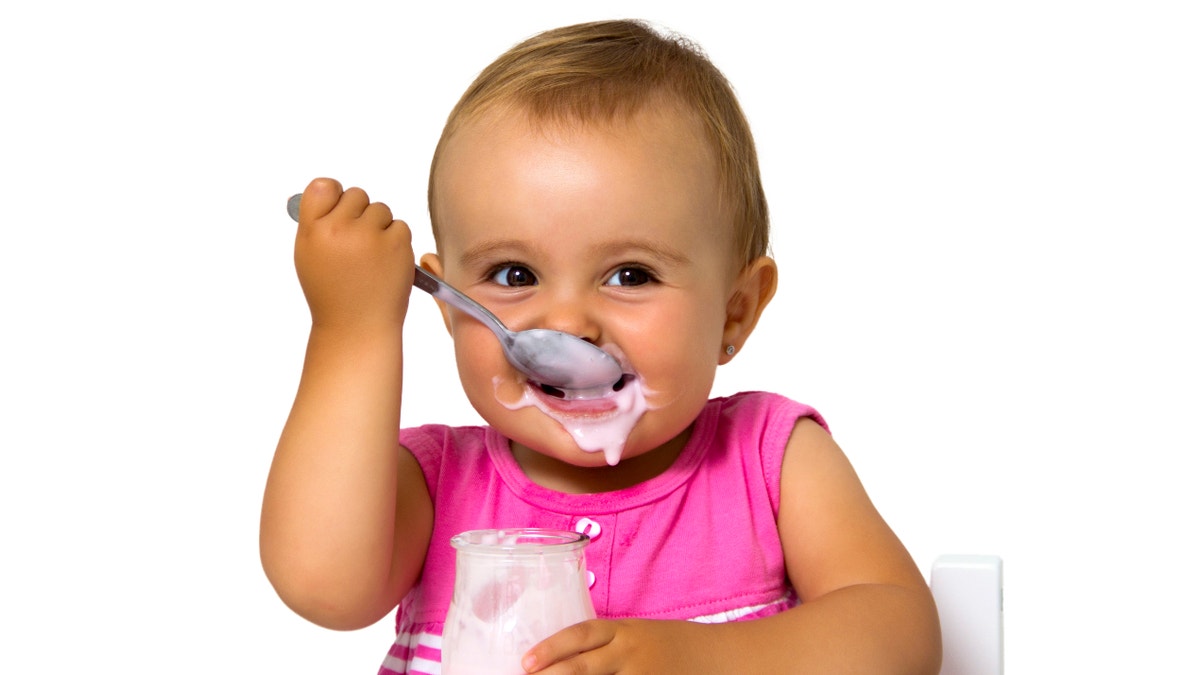
girl eating yogurt isolated on white (MarcoGovel)
A baby’s diet during his or her first year is crucial for development, but there are so many questions about what to eat and when to eat it. It’s important for new parents to do thorough research before making changes to their baby’s diet, because the wrong move could be damaging. For example, starting a baby on solid food too early can increase his or her chance of being overweight as an adult.
Related to 11 Healthiest and Unhealthiest Foods for Your Baby
Feeding Infants Peanut Products Could Help Prevent Allergies
Moms Who Eat Well Before Pregnancy Can Lower Risk of Infant Heart Abnormalities
Is There a Link Between Artificially Sweetened Beverages and Infant BMI?
Restaurant Manager Prevents Intoxicated Woman From Driving Away with Infant in the Car
Even though a baby’s diet changes a lot during the first year, there are some rules that are fairly consistent. The American Academy of Pediatrics recommends breastfeeding as the only source of food for at least six months, and that parents with a history of food allergies should avoid common food allergens such as peanuts and dairy. (Consult with a doctor as to when these foods should be introduced into your baby’s diet.)
Babies should be given a mix of fruits, vegetables, and proteins in order to provide a diverse nutritional profile, and they should be given a variety of foods to help prevent picky eating in the future. Though parents can’t be in complete control of all aspects of their baby’s health, they can still set a strong nutritional foundation.
Here’s a list of some of the healthiest and unhealthiest foods for your baby, according to various pediatricians and nutritionists.
Click Here for 11 Healthiest and Unhealthiest Foods for Your Baby Slideshow
